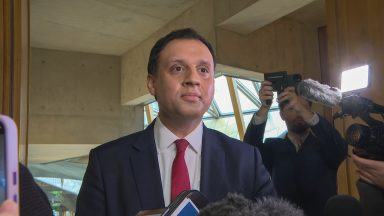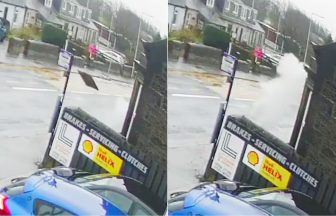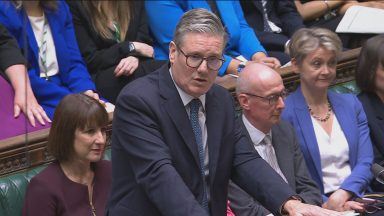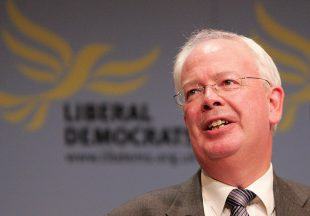Buses across the west of Scotland have taken one step closer to falling back under public ownership after a vote by the area’s transport body to shake up the industry.
Strathclyde Partnership for Transport (SPT) voted on Friday to take the services back under local control through a franchising model.
The move represents one of the biggest changes to buses in Glasgow and the surrounding areas since they were deregulated by Margaret Thatcher in 1986.
It would dramatically change the way buses in Strathclyde work and would bring them more on par with the systems in London, Manchester and Edinburgh.
What is ‘local franchising’?
Local franchising would see a public body control fares, routes and ticketing across the Strathclyde region.
Under the system, bus firms would compete to win contracts to deliver specific services set up by that body, such as the SPT.
In theory, it could mean more services to lesser-served areas that are effectively subsidised by busy routes.
It could also open up the possibility of bus firms being fined for subpar services.
If a bus company provides poor service such as being late it could lose the contract.
Why change the system?
SPT said it is trying to reverse the long-term decline in bus usage which it says has resulted in a third fewer passengers in a decade.
It is trying to tackle expensive bus fares, infrequent and a lack of routes for some areas deemed unprofitable by private businesses.
In August, FirstBus caused outrage after it announced plans to scrap all of its night services in Glasgow. Following pressure, it announced a deal with McGill’s that would see four out of its 11 services kept.
Under a franchise model, these companies would not have the option to axe any routes.
SPT said franchising is a proven model for delivering local bus services throughout Europe, and that it can significantly improve networks, lead to more passengers and boost accessibility.

Andrew Carter, chief executive of the economic think tank Centre for Cities, said the current public transport system “underserves a lot of residents”.
He said changing to a franchising model could improve access to the city centre for 300,000 people.
He added: “It will lead to better routes, better pricing and simpler fares for passengers. It’s one step towards reversing the decline in bus travel and getting the economy firing again.
“Greater Manchester, the first place outside London to implement bus franchising, has already seen rising passenger satisfaction and an eight per cent increase in bus passenger numbers.”
What are the challenges?
According to SPT, the process of establishing a franchising model could cost up to £15m and could take up to seven years.
SPT chairman and SNP councillor for Govan Stephen Dornan said the body would require more cash from the Scottish Government to deliver the plans.
McGill’s, the largest independent bus firm in the UK, reacted furiously to the franchising plans.
CEO Ralph Roberts claimed it would cost the taxpayer £100m a year and said it would amount to “theft of a private business”.
“With a £1bn black hole in the Scottish economy, I cannot imagine how they are going to find £100m per year to subsidise franchised bus services in Strathclyde,” he said.
“Franchising is effectively confiscation of a business that has been built in good faith over many years with investors funds and it raises a host of legal implications, including issues under Article 1 of ECHR.
“It goes against every sense of natural justice and we would take this to every court in the land and beyond.
“Franchising can be introduced in a different way and our opposition to it will be absolute until the threat of theft of a private business is lifted.
“Bus use is declining because local authorities haven’t done their job to help bus users. I see nothing from franchising that will change this and unless councillors are willing to make the kind of tough decisions made in other places, particularly in prioritising buses over private cars, then this will be a very expensive waste of money for the taxpayer.”
Roberts added: “Our advice is simple and based on proven experience from around the world – remove buses from congestion and take business confiscation off the table.
“These two simple steps will build trust and show that this is about bus users rather than a power trip for politicians and quangos, most of whom never set foot on a bus.”

Duncan Cameron, Managing Director for First Bus Scotland: “In 2023, we saw fantastic passenger growth in Glasgow, with increases of over 20% on some routes.
“As we move through 2024, this rise in demand will be further supported with investment in more buses on the road, alongside further investment that benefits customers across the city.
“No matter the operating model, congestion remains the biggest factor impacting bus services in Glasgow. Reducing journey times decreases the cost of operation and, in turn, decreases fares for the customer.
“It is therefore fundamental that all stakeholders maintain focus on addressing this issue as soon as possible and investing in greater bus priority measures.
“We look forward to taking part in the upcoming consultation.”
What’s next?
Ahead of franchising services – which will take years – SPT will move forward with its bus service improvements partnership (BSIP) arrangements to provide a basis to curb the decline in passenger numbers.
“BSIPs, which also require suitable investment, offer the best opportunity for a significant, interim improvement while we work to establish the world-class local bus franchise model the people of the west of Scotland deserve,” SPT chairman and SNP councillor for Govan Stephen Dornan said.
SPT says BSIPs are a “robust, contract-based governance structure, whereby commitments made by partners are carefully matched, and in certain circumstances, can be imposed on those whose services or responsibilities may be affected.
The anticipation is that by creating a robust BSIP governance process, it will give greater
certainty and encourage all partners to make more ambitious commitments.”
The proposals, including franchising, are set to be put to a public consultation which will be launched in April.
But they could also rely on extra funding from the Scottish Government, which is yet to be announced.
Approached by STV News, Transport Scotland refused to comment on more funding for SPT.
Follow STV News on WhatsApp
Scan the QR code on your mobile device for all the latest news from around the country


 iStock
iStock
























